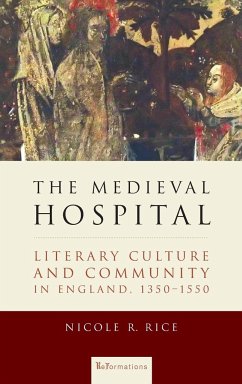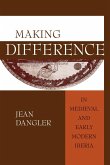Nicole Rice's original study analyzes the role played by late medieval English hospitals as sites of literary production and cultural contestation. The hospitals of late medieval England defy easy categorization. They were institutions of charity, medical care, and liturgical commemoration. At the same time, hospitals were cultural spaces sponsoring the performance of drama, the composition of medical texts, and the reading of devotional prose and vernacular poetry. Such practices both reflected and connected the disparate groups-regular religious, ill and poor people, well-off retirees-that congregated in hospitals. Nicole Rice's The Medieval Hospital offers the first book-length study of the place of hospitals in English literary history and cultural practice. Rice highlights three English hospitals as porous sites whose practices translated into textual engagements with some of urban society's most pressing concerns: charity, health, devotion, and commerce. Within these institutions, medical compendia treated the alarming bodies of women and religious anthologies translated Augustinian devotional practices for lay readers. Looking outward, religious drama and socially charged poetry publicized and interrogated hospitals' caring functions within urban charitable economies. Hospitals provided the auspices, audiences, and authors of such disparate literary works, propelling these texts into urban social life. Between ca. 1350 and ca. 1550, English hospitals saw massive changes in their fortunes, from the devastation of the Black Death, to various fifteenth-century reform initiatives, to the creeping dissolutions of religious houses under Henry VIII and Edward VI. This volume investigates how hospitals defined and defended themselves with texts and in some cases reinvented themselves, using literary means to negotiate changed religious landscapes.
Hinweis: Dieser Artikel kann nur an eine deutsche Lieferadresse ausgeliefert werden.
Hinweis: Dieser Artikel kann nur an eine deutsche Lieferadresse ausgeliefert werden.








